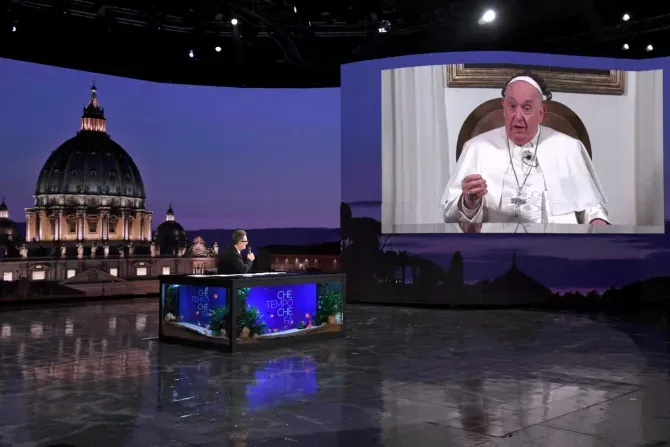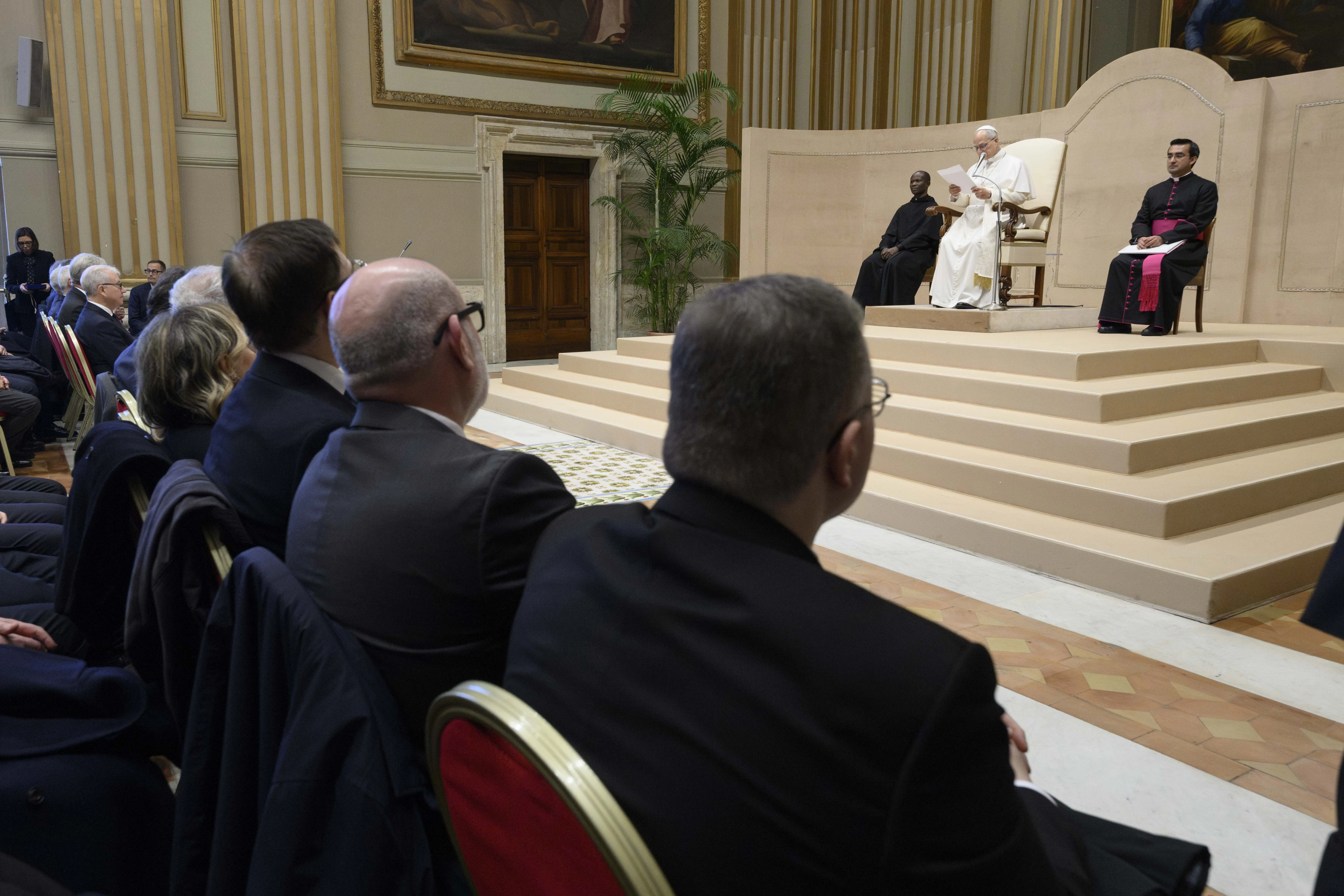The new president of Argentina, Javier Milei, sent Pope Francis a formal invitation to visit his homeland earlier this month.
Pope Francis said that he would like to go to Argentina “if it can be done” and also noted that it is “a difficult time for the country.”
“It worries me because people are suffering so much,” he said.
What is Pope Francis afraid of?
Pope Francis spoke extensively in the interview about his desire for peace in the wars in Ukraine and in the Holy Land, telling the TV host that he speaks every day to the Catholic parish in Gaza on the telephone.
(Story continues below)
When asked what scares him, Pope Francis replied that the “escalation of war scares me,” bringing up the specter of nuclear war.
He said that with the potential for nuclear weapons to “destroy everything,” one wonders “how we will end up, like Noah’s ark?”
“That scares me — the capacity for self-destruction that humanity has today,” Francis said.
This was the second time Pope Francis has appeared on “Che Tempo Che Fa,” which often airs live interviews with politicians, celebrities, artists, and athletes. Recent guests on the program include former U.S. President Barack Obama in 2021 and Lady Gaga.
Pope Francis spoke with the TV program, which is recorded in Milan, northern Italy, remotely from the Vatican.
Why Pope Francis constantly asks for prayers
In the interview, Pope Francis was also asked why he ends every speech and public audience asking for people to pray for him.
“Because I am a sinner and I need God’s help to remain faithful to the vocation he has given me,” the pope replied.
“As a bishop I have a very great responsibility to the Church. I recognize my weaknesses — that’s why I have to ask for prayers, for everyone to pray for me to remain faithful in the service of the Lord, that I do not end up in the attitude of a mediocre shepherd who does not take care of his flock,” he added.
Courtney Mares is a Rome Correspondent for Catholic News Agency. A graduate of Harvard University, she has reported from news bureaus on three continents and was awarded the Gardner Fellowship for her work with North Korean refugees.








